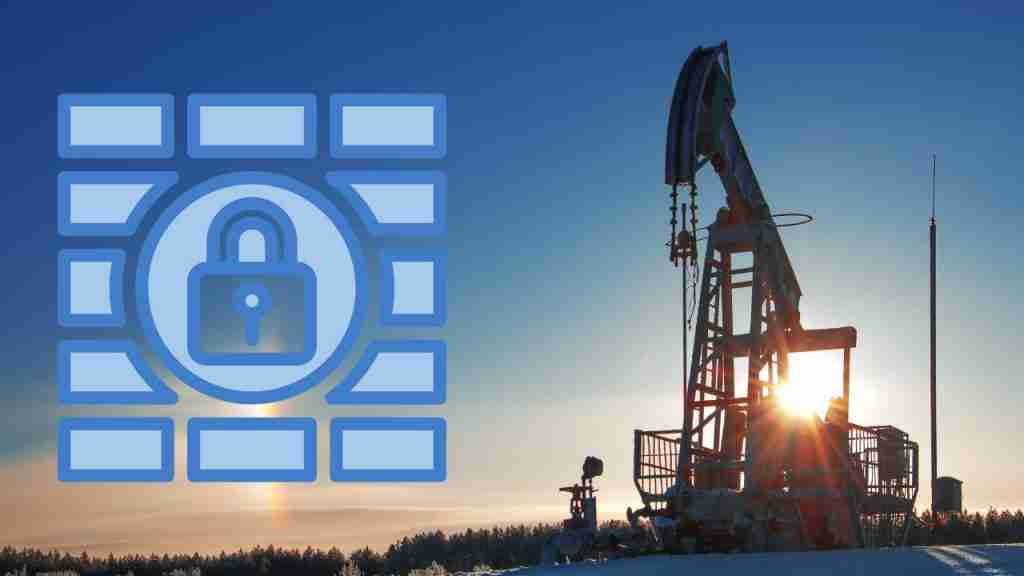A firewall as a service provides a high level of security through web filtering, advanced threat management, intrusion detection, and DNS protection. FWaaS has the advantage of being able to expand or reduce the size of the network without the logistical delays present when using traditional hardware firewalls.
It also makes it much easier to implement new services as the network’s needs change. Its reliance on the cloud also means that it is adaptable to the security requirements of any given network.
TTR Technology provides turnkey FWaaS solutions that provide extensive network security for Oil and Gas Industries, addressing new and continuously developing cyber threats and meeting your security needs.
What is Firewall as a Service?
Firewall as a Service (FWaaS) is a cloud-based approach to network security for businesses, including the oil and gas sector, without hardware equipment on the premises. What’s interesting about this solution is that it serves as a liaison between traditional firewalls and the provider, with features such as traffic inspection, access control, and threat detection.
FWaaS Subscription Model
FWaaS provides a subscription model that measures scalability and flexibility based on the ever-changing needs of the industry. In an industry where digital transformation has overhauled operations and put cyber security at the center of these activities, FWaaS is the critical safety valve against cyber threats that target core critical infrastructure and data.
Deloitte’s research reveals that the oil and gas industry, with its numerous interconnected systems and digitalized technologies, is highly susceptible to cyber attacks. FWaaS is designed to address these vulnerabilities. It fortifies the cybersecurity defenses by offering centralized management as well as real-time monitoring, reducing the task of hardware maintenance.
Why does the oil and gas industry need FWaaS?

The oil and gas industry, which is well-known for its large-scale operations, faces some complicated cybersecurity problems. The interspersion of drilling operations and distribution networks, which form an intricate framework that renders the industry a target for cyber threats,
According to a Ponemon Institute study, the number of cyberattacks targeting the oil and gas industry has increased by 50% in the past year, indicating a significant need for improved security measures in this sector. The oil and gas sector will undergo a revolution in network security with the introduction of Firewall as a Service, highlighting the growing importance of cloud-based security as it replaces the on-premises hardware component.
Unlike traditional firewalls, this solution is dynamic and includes traffic inspection, access control, and threat protection, all managed by a third provider. The FWaaS model is progressive; it provides the industry with scalability and flexibility that match all the fluctuating demands. Its driving force for the scale and complexity of the oil and gas networks is what matters most, especially when considering the complex system in which the industry is operating.
In addition, we can centralize security orchestration and establish uniform security policies at all endpoints, including remote sites and field operations.
Benefits of Firewall as a Service
- The system offers additional layers of attack identification, network protection, and malicious activity filtering.
- It reduces hardware costs and maintenance costs for expensive on-premise hardware.
- This system allows for quickly increasing and reducing resource needs based on demand and network expansion.
- Simplify the administrative tasks involved in managing security policies.
- It possesses the inherent characteristics that enable it to maintain and follow industry regulations and data protection laws.
- The system provides round-the-clock vigilance and also sends notifications about possible security threats.
- By reducing latency and ensuring proper traffic handling, it takes proactive steps to improve network performance.
- The system automatically installs security updates without any interaction from the user.
- It works well in distributed systems, such as a hybrid or multi-cloud network.
- The company provides subscription-based services that enable customers to contact security professionals for additional assistance.
What is a firewall audit, and why is it important?
Firewall audits are crucial in the oil and gas industry especially in Dallas because a security breach can have catastrophic consequences. These audits entail a meticulous review of firewall configurations, rules, and policies to gauge their efficacy in thwarting security risks and adhering to organizational policies and regulatory standards.
IBM’s study estimates the average cost of a data breach in the oil and gas sector to be $5.53 million. Furthermore, it highlights the critical need for robust cybersecurity measures. Organizations can identify vulnerabilities and gaps in their network defenses through proactive firewall audits, preventing malicious actors from exploiting them.
How Do You Perform a Firewall Audit?

Firewall audits are crucial for maintaining a high level of network security. Here are the key steps TTR Technolgy follows to performing a firewall audit:
- Determine the firewall audit’s boundaries and goals.
- Determine risk objects, regulations, and auditing techniques.
- Collect information about firewalls, such as the type of firewall rules applied, access controls, network diagrams, and logging configuration.
- Cross-check all the appropriate data to ascertain whether it is accurate and updated.
- Compare firewall policies against the best practices and security standards.
- Ensure that it is in line with organizational policies and conforms to established regulatory mandates.
- Verify the proper authorization and recording of each firewall rule.
- This could include removing any duplicate, outdated, or unclear policies.
- It is necessary to monitor and analyze network traffic logs for any irregularities that may indicate security breaches or unauthorized access to a site.
- Try to find a number of other factors that may signal a potential security vulnerability.
- Make sure that access controls are correctly defined to restrict access to sensitive systems or data.
- Furthermore, it Implements an appropriate access control model, such as role-based access control or least privilege.
- Make sure the controls for logging and monitoring are in place and functioning.
- Verify the frequent review of logs and the activation of alarms for unusual behavior.
- Evaluate the firewall’s performance through an inspection and evaluation.
- Help identify possible vulnerabilities in various cyberattacks.
- Organize all the collected materials into an audit report.
- I will include the identified risks, recommended remediation measures, and compliance status.
- The list of recommended remediation actions for each address with identified vulnerabilities follows the information about the vulnerabilities.
- Modify firewall settings and rules to match the new settings.
- Devise regular follow-up surveillance systems to provide perpetual coverage.
- Consider real-time monitoring, standard log assessment, and security intelligence.
- Conducting regular audits would ensure that the firewall has updated configurations and policies.
- Defend against emerging threats and new conditions in the network environment.
TTR Technology and FWaaS Audit Management
The Firewall Audit and Reporting solution by TTR Technology aids in effective firewall management by providing complete visibility into the firewall infrastructure and processes. Moreover, it ensures complete audit and compliance and reduces security risks.
Furthermore, It helps transparency by allowing IT and authorized users to control and configure firewall policies from a central location based on business information. Task automation simplifies processes, leaving less work for the IT team. This means that you will have all the necessary control and oversight to shield your business from emerging cyber risks. Contact us today for more details.





